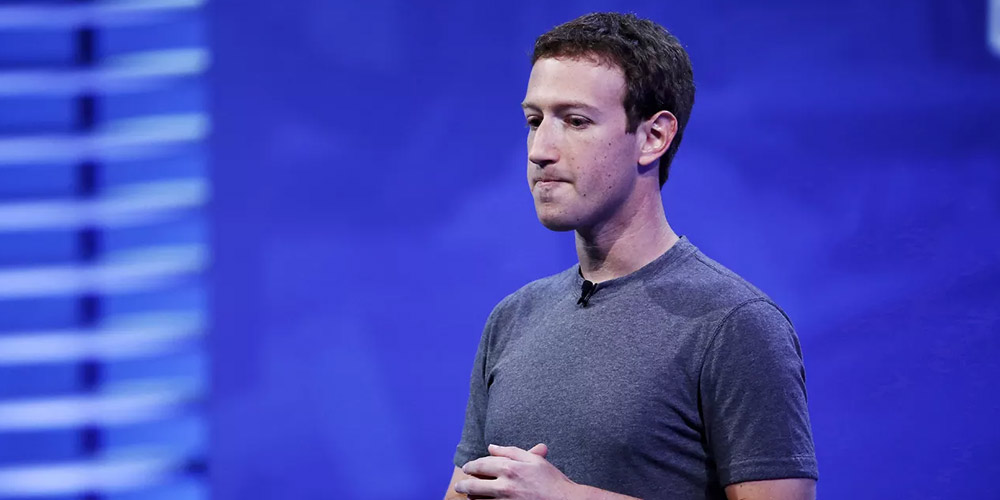
Facebook and privacy aren't the best of friends, and practically everyone on the web knows that.
However, the world's largest social media seems to have something in mind that may debunk that fact. With confidence, founder and CEO Mark Zuckerberg is looking forward to make Facebook a bit more private.
Facebook and its products have indeed helped many people around the globe connect with friends, communities, and interests in "the digital equivalent of a town square". But somehow, people also want to connect privately in "the digital equivalent of the living room".
In a note post titled "A Privacy-Focused Vision for Social Networking", in 3,000+ words, Zuckerberg announced that his company somehow, and finally understands, the concept of privacy.
He highlighted several principles to achieve this:
- Private interactions: Users should have places where they have clear control over who can communicate with them and confidence that no one else can access what they share.
- Encryption: Users' private communications should be secured using end-to-end encryption.
- Reducing Permanence: Users should be comfortable being themselves, and should not have to worry about what they share coming back to hurt them later. Here, Facebook won't keep messages or stories around for longer than necessary.
- Safety: Users should expect that Facebook will do everything it can to keep them safe on its services within the limits of what's possible in an encrypted service.
- Interoperability: Users should be able to use any of Facebook's apps to reach their friends, and they should be able to communicate across networks easily and securely.
- Secure data storage: Users should expect that Facebook won't store sensitive data in countries with weak records on human rights like privacy and freedom of expression in order to protect data from being improperly accessed.
Besides Google, Facebook can be considered one of the internet companies that thrive on users data, and has the most detailed information about its users than any companies on Earth.
To achieve this, Facebook leverages an array of methods, in which gather whatever users share and do on its platform and beyond, to understand their needs, habits and interests.
In short, Facebook hungers for data, and it's doing anything in can using whatever it has, to get more and more data.
With the massive trove of information, Facebook is capable of connecting advertisers with their targeted audience, with pinpoint accuracy. With users sharing just about everything imaginable, Facebook's database of user information can't be compared to anything else.
And also with Facebook's massive control on user data and how people communicate on the web, no other company can build anything interesting in the social media space.
And by including its well-established and wildly aggressive stance toward competitors, most companies that wants to compete against it, is a game over even before the game begins.
This is because Facebook wants to acquire anything that it sees pose threat. And if it can't acquire, it kills.
These strategies have proven to be successful, and earned the company the title of one of the largest tech company IPO, and billions of dollars that spearheaded it to become the largest social media the world has ever seen.
But this is where things went wrong.

Facebook is invasive.
More than often, the social media also make use of users' weaknesses in checking its privacy pages, and its complicated settings, to continue its purpose to collect data, even without users' knowledge. Its app for example, operates by requiring practically every permission offered by mobile operating systems.
This landed Facebook is numerous problems.
From the famous Cambridge Analytica scandal, the Russians in meddling with the election.
Not limited to that, Facebook also received backlash after it got hacked, and having its users' private messages leaked and for sale on the dark web.
These in turn created a series of PR nightmare and criticisms from privacy advocates, antitrust regulators, its own users, the governments and others.
Here, Zuckerberg in playing it safe.
Valuing privacy seems to be his long-term interests, he knows that Facebook's growth is declining (1) (2). And within the Facebook universe, people are shifting toward private groups and messaging, and that Instagram’s explosive growth reflects a desire among users to be more intimate than Facebook's News Feed.
At the same time, it’s that News Feed that gave Facebook years of PR nightmares.
Embracing private messaging and encrypted communications both leans into the company’s future and retreats from its fraught present.
"I believe a privacy-focused communications platform will become even more important than today's open platforms. Privacy gives people the freedom to be themselves and connect more naturally, which is why we build social networks," said Zuckerberg.

Facebook was founded in 2004. After more than a decade encouraging users to share just about anything with the world, Facebook's decision to finally care about privacy, can actually mean something special for the company.
As a matter of fact, it may actually be something convenient for Facebook than it first seems.
Facebook thrives and lives on ads it show on users' feed. This change of mind would impact Facebook’s business, its users, governments, dissidents, the media, and many many others.
It would make Facebook a lot like Snapchat, for example; It would also constrain the company's advertising business; It could also put China off-limits for Facebook, as the platform starts neglecting the world's largest growth market; It can also turn Facebook into a “dark social” network that act as a safe haven for criminals or even terrorists' activities.
However, Facebook in becoming more private would simply eliminate Facebook's biggest PR problems, allowing to battle fake news, hate speech, election interference and harassment. It would also create new realms of e-commerce and in-app purchases where the company can get more revenue.
But what Zuckerberg sees here is that, his model of making the world “more open and connected” was inherently flawed. His vision for Facebook in embracing privacy, is for a long term, for the sake of his company to thrive in years and decades to come.
Whether this is real or a mere distraction, Zuckerberg requires himself and Facebook in changing pretty much everything the world has learned about him and Facebook over the years.
For all this time, Facebook values growth and dominance, way over privacy, security, or any other high-minded principles they might espouse when it’s convenient.
Facebook is a company that can barely give people a straight answer about what happens. And if it really values privacy, Facebook won't be the Facebook we all know.